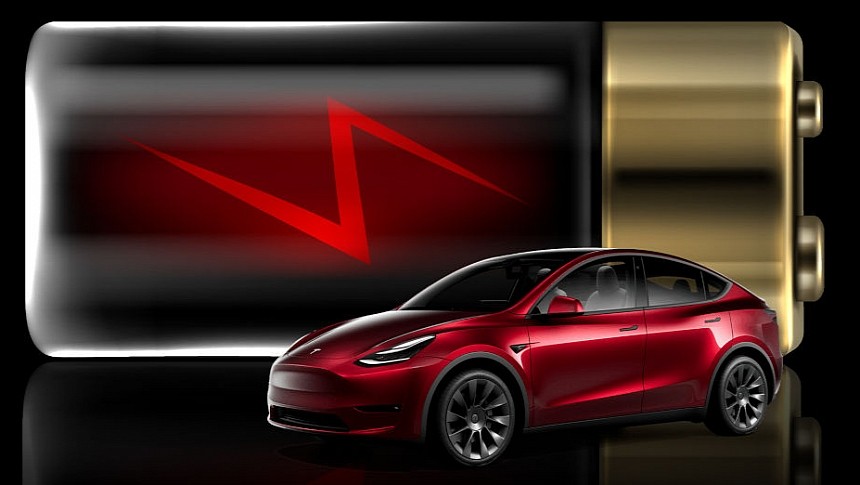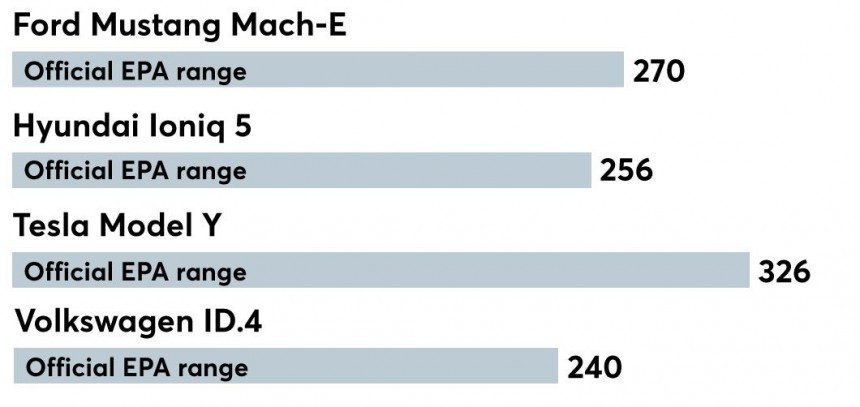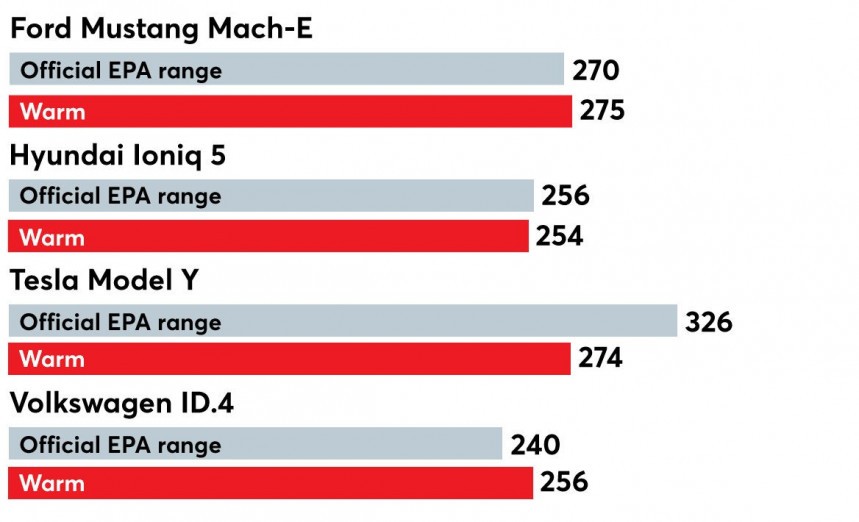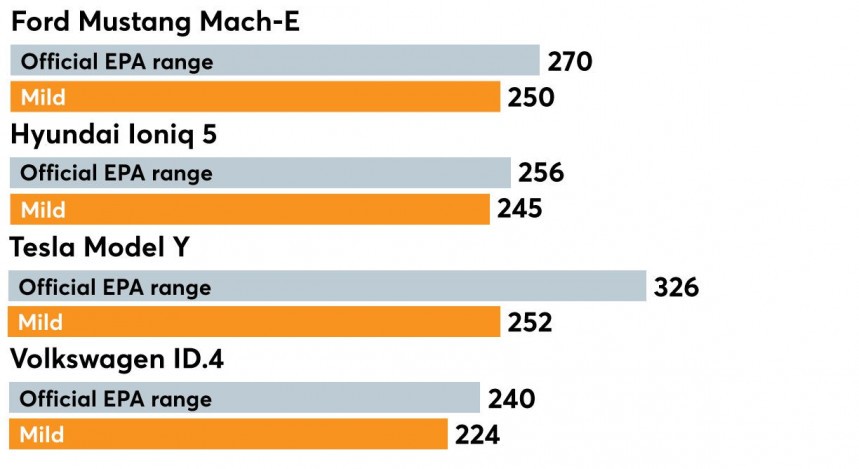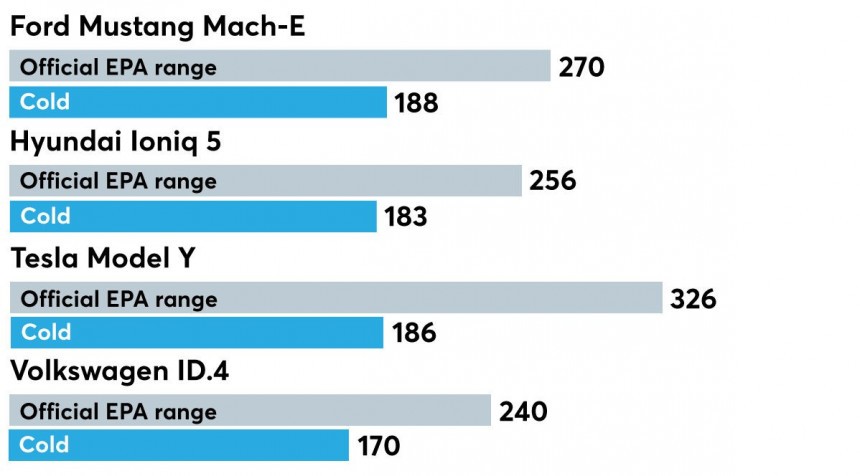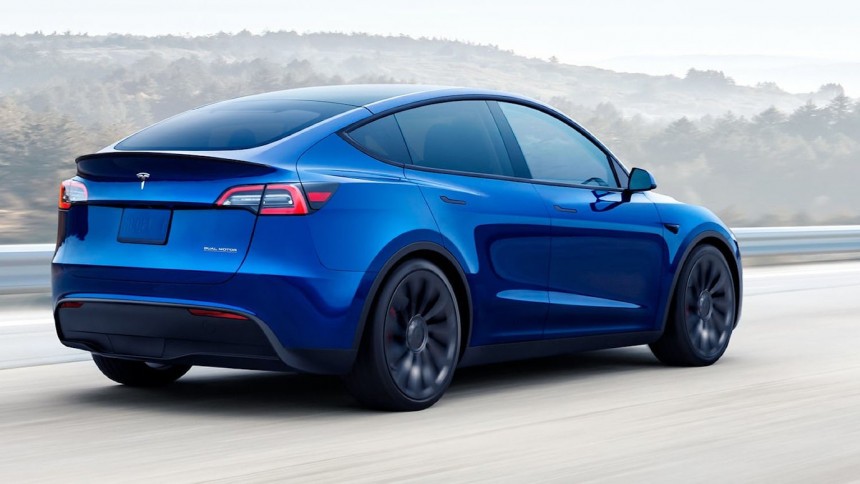The hottest July in history put both the Tesla fan club and Tesla haters club on fire because of a Reuters investigation. The journalists uncovered details about a so-called "Diversion Team" and its mission to cancel service appointments for owners complaining about driving range. And now Customer Reports pours gas on fire because of Model Y's poor results in a comparative range test.
Allow me a brief review of the Reuters findings. If you'd like more information, you can read Gustavo's long story on the subject. In short, although EPA ratings for Tesla cars ranges were extraordinary (on paper), some not-so-few owners were disappointed by the real-life range of their cars and wanted a service appointment to check if there was something wrong with their batteries.
Reuters sources stated that the company knew that EPA ratings were too optimistic for real-life conditions, and the algorithm wasn't meant to adapt its estimates according to the outside temperature. As you may already know, cold weather is enemy number one for EV range. And when the battery is good for only half the range advertised… you could easily feel deceived, enraged, and so on.
It's not the first time someone is conducting such an experiment: testing electric cars in real-life driving situations and different temperature conditions. But it's the "best" moment for their conclusion – "Tesla doesn't meet range claims year-round" – to make a buzz. Especially since they talk about Model Y, presumably the world's best-selling EV or even the world's best-selling car, according to some sources.
Consumer Reports gathered four electric crossovers almost everyone here is familiar with – Ford Mustang Mach-E, Hyundai Ioniq 5, Tesla Model Y, VW ID.4 – and, over the past year, they conducted "seasonal testing." They drove the cars virtually the same so that comparison is as accurate as possible.
The main issue observed was, by no means, the critical effect the low temperatures had on cars' range. Lithium-ion battery chemistry's efficiency drops in cold weather, which translates to a higher electricity consumption per mile. Add to this the extra juice the air conditioning system needs to heat the cabin, and you can understand that a smaller range than advertised is unavoidable.
To put things in perspective, in cold weather, internal combustion engine consumption also increases, sometimes by a large margin. Because of low temperatures, ICE's low efficiency (compared to an electric motor) gets worse, but the range is not such a big issue because the fuel tank is pretty big. CR may likely conduct such an experiment involving all kinds of propulsion systems.
Until then, let's take a look at some values. Just to remind you, they are helpful only by comparing the cars in this test, which were tested the same. Each car tested separately, in other circumstances, will probably result in different values.
Electric vehicles have a twist – the public is mainly interested in how long the EV can be used on a full charge. Consumption values are useless because they involve some math and information about the battery capacity. Frankly, nobody gives a damn about it unless "bigger battery" means "more expensive."
Unfortunately, "bigger battery" doesn't necessarily mean "longer range" when cold outside. I won't get into the Consumer Reports' technical details of measurement methodology. I'll only give you an idea of how bad things are regarding the difference between the advertised EPA ranges and CR's test results.
Firstly, let's see how much the differences between the official range of each car and the CR's range in warm conditions (85° F / 29° C) when you expect an EV to travel the longest:
- Ford Mustang Mach-E: its calculated range is 5 miles longer than EPA's, so the percentage would be a negative one; it deserves thumbs up
- Hyundai Ioniq 5: 0.8%
- Tesla Model Y: 16%
- Volkswagen ID.4: the calculated range is 16 miles longer than EPA's, so I can only applaud it because a negative percentage is of no use
Tesla Model Y's range was calculated to be shorter by 52 miles than the EPA range. The 16% difference is an unpleasant surprise for warm temperatures, where the electricity consumption should be optimum. So, strike one for Tesla.
Secondly, what are the differences in mild conditions (65° F / 18° C) – the ones that most of us are familiar with most of the year:
- Ford Mustang Mach-E: 7.4%
- Hyundai Ioniq 5: 4.3%
- Tesla Model Y: 22.7%
- Volkswagen ID.4: 6.7%
Thumbs up to Hyundai; good job VW and Ford, but what the heck is happening to Tesla? The range loss is MORE than the other three percentages combined! Model Y could travel almost a quarter less than what EPA is saying, and this is a slap in your face coming from the star of EV sales. So, strike two.
Thirdly, we'll see the differences in cold weather (17° F / -8° C), and you should expect some steep declines in range because the guys from CR drove in the winter of 2022 in February:
- Ford Mustang Mach-E: 30.3%
- Hyundai Ioniq 5: 28.5%
- Tesla Model Y: 43%
- Volkswagen ID.4: 29.1%
In cold weather, you should expect a range shorter by around a third for three EVs here compared to the EPA value. It's not a nice picture, but it's normal for current lithium-ion technology – although very few dealers tell prospective customers this detail. In real life, you should plan those long journeys in the winter more carefully.
Unfortunately, Tesla fares astonishingly bad. Its range almost halves in cold weather compared to the EPA rating, despite Model Y being the lightest of the four, having the most advanced heat pump for adjusting cabin temperature, and the most aerodynamic shape. You would expect the most negligible difference, but instead, you've got a strike three, Tesla!
Regarding Tesla, the Consumer Reports' results suddenly became interesting proof for Reuters' investigation. One could argue that the timing is probably too perfect, but I really don't see it as an anti-Tesla conspiracy. It could hurt Tesla's hype image, of course, but Tesla cars are not all about range.
The problem is that the EV range is perceived as the "Achilles heel" by the large public, especially by the undecided. Being frank about the downsides of electric cars and coming up with valid arguments could help them make the right choice – choosing an electric car instead of another internal combustion engine car.
But being dishonest about the vital performances of your electric cars is hurting electromobility in the long run, mister Musk – the same as an aggressive price-cut war. Or maybe smaller prices reflect the actual range of Tesla cars? Hopefully, there's a lesson to be learned from all these, and I expect it to be better and more transparent public communication.
Reuters sources stated that the company knew that EPA ratings were too optimistic for real-life conditions, and the algorithm wasn't meant to adapt its estimates according to the outside temperature. As you may already know, cold weather is enemy number one for EV range. And when the battery is good for only half the range advertised… you could easily feel deceived, enraged, and so on.
Many go out for wool and come home shorn
The most disturbing thing in the Reuters story is that Tesla had a "task force" to discourage complaining people from going to service. Now that's something Tesla fans can't entirely forgive Elon Musk for, so keep an eye on TSLA stock value fluctuations. In the meantime, one of the latest Consumer Reports can't be ignored.It's not the first time someone is conducting such an experiment: testing electric cars in real-life driving situations and different temperature conditions. But it's the "best" moment for their conclusion – "Tesla doesn't meet range claims year-round" – to make a buzz. Especially since they talk about Model Y, presumably the world's best-selling EV or even the world's best-selling car, according to some sources.
Consumer Reports gathered four electric crossovers almost everyone here is familiar with – Ford Mustang Mach-E, Hyundai Ioniq 5, Tesla Model Y, VW ID.4 – and, over the past year, they conducted "seasonal testing." They drove the cars virtually the same so that comparison is as accurate as possible.
To put things in perspective, in cold weather, internal combustion engine consumption also increases, sometimes by a large margin. Because of low temperatures, ICE's low efficiency (compared to an electric motor) gets worse, but the range is not such a big issue because the fuel tank is pretty big. CR may likely conduct such an experiment involving all kinds of propulsion systems.
Until then, let's take a look at some values. Just to remind you, they are helpful only by comparing the cars in this test, which were tested the same. Each car tested separately, in other circumstances, will probably result in different values.
The biggest range, the biggest disappointment
It should not surprise that the EPA's values are only indicative figures closer to best-case driving scenarios than everyday ones. It's the same for ICE vehicles, by the way – you're most likely to get a lower mileage than the EPA-rated. But, as I said before, the fuel tank is pretty large for you not to be concerned about the range.Electric vehicles have a twist – the public is mainly interested in how long the EV can be used on a full charge. Consumption values are useless because they involve some math and information about the battery capacity. Frankly, nobody gives a damn about it unless "bigger battery" means "more expensive."
Unfortunately, "bigger battery" doesn't necessarily mean "longer range" when cold outside. I won't get into the Consumer Reports' technical details of measurement methodology. I'll only give you an idea of how bad things are regarding the difference between the advertised EPA ranges and CR's test results.
- Ford Mustang Mach-E: its calculated range is 5 miles longer than EPA's, so the percentage would be a negative one; it deserves thumbs up
- Hyundai Ioniq 5: 0.8%
- Tesla Model Y: 16%
- Volkswagen ID.4: the calculated range is 16 miles longer than EPA's, so I can only applaud it because a negative percentage is of no use
Tesla Model Y's range was calculated to be shorter by 52 miles than the EPA range. The 16% difference is an unpleasant surprise for warm temperatures, where the electricity consumption should be optimum. So, strike one for Tesla.
- Ford Mustang Mach-E: 7.4%
- Hyundai Ioniq 5: 4.3%
- Tesla Model Y: 22.7%
- Volkswagen ID.4: 6.7%
Thumbs up to Hyundai; good job VW and Ford, but what the heck is happening to Tesla? The range loss is MORE than the other three percentages combined! Model Y could travel almost a quarter less than what EPA is saying, and this is a slap in your face coming from the star of EV sales. So, strike two.
- Ford Mustang Mach-E: 30.3%
- Hyundai Ioniq 5: 28.5%
- Tesla Model Y: 43%
- Volkswagen ID.4: 29.1%
In cold weather, you should expect a range shorter by around a third for three EVs here compared to the EPA value. It's not a nice picture, but it's normal for current lithium-ion technology – although very few dealers tell prospective customers this detail. In real life, you should plan those long journeys in the winter more carefully.
Unfortunately, Tesla fares astonishingly bad. Its range almost halves in cold weather compared to the EPA rating, despite Model Y being the lightest of the four, having the most advanced heat pump for adjusting cabin temperature, and the most aerodynamic shape. You would expect the most negligible difference, but instead, you've got a strike three, Tesla!
Numbers talk, and it's not a pretty story
As expected, CR's test proved that the EV range is very much affected by lower temperatures in real-life conditions. Depending on various factors, you could get smaller or bigger differences in your Mustang Mach-E, Ioniq 5, or ID.4, but at least you can expect decent range losses. That's important info for any EV owner or anyone considering switching from an ICEV to an EV.Regarding Tesla, the Consumer Reports' results suddenly became interesting proof for Reuters' investigation. One could argue that the timing is probably too perfect, but I really don't see it as an anti-Tesla conspiracy. It could hurt Tesla's hype image, of course, but Tesla cars are not all about range.
But being dishonest about the vital performances of your electric cars is hurting electromobility in the long run, mister Musk – the same as an aggressive price-cut war. Or maybe smaller prices reflect the actual range of Tesla cars? Hopefully, there's a lesson to be learned from all these, and I expect it to be better and more transparent public communication.
